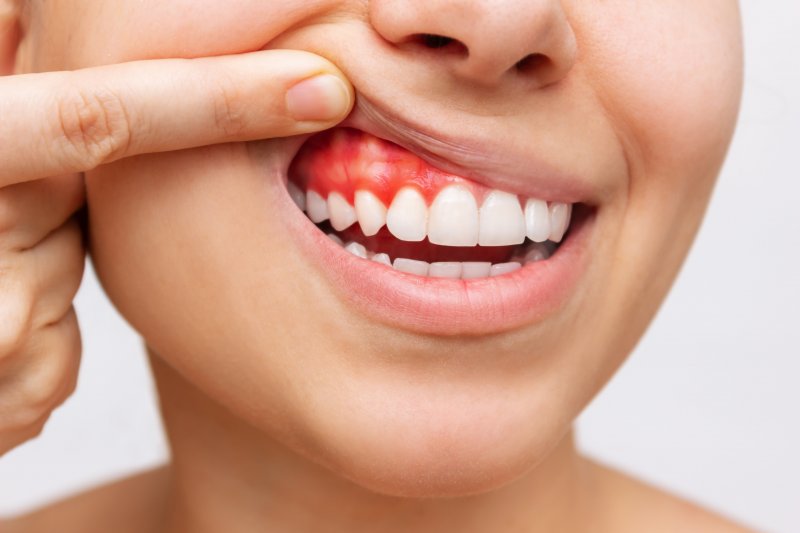
When looking at the different signs associated with sleep apnea, one of the most prominent and often practiced is mouth breathing. Although it may seem harmless, your inability to breathe properly through your nose can negatively affect more than just your sleep patterns. It can also increase your risk of developing gum disease. Keep reading to discover more about this connection and what you can do to protect your oral health while also getting the rest you desperately need.
What Causes Mouth Breathing?
The most common reason you might breathe through your mouth is that there is an obstruction in your nasal passage. When battling sinus congestion or a cold, you may find it increasingly difficult to inhale through your nose, so instead, you allow air to flow through your mouth.
A deviated septum, lip-tie, and enlarged adenoids and/or tonsils are all reasons you may be considered a “mouth breather.”
How Does Mouth Breathing Lead to Gum Disease?
One of the symptoms associated with mouth breathing is dry mouth and bad breath. With air being pushed through the mouth instead of the nose, it stops moisture from pooling (saliva), which is commonly used to neutralize harmful acids and flush out bad bacteria.
When saliva is not produced because of mouth breathing, this space becomes a haven for bacteria and other particles to form, all of which can lead to gum disease if left untreated. Poor oral hygiene habits can then lead to bad breath or halitosis as well as other oral health problems.
How Does Mouth Breathing Lead to Sleep Apnea?
If breathing through the mouth becomes a persistent problem, it can increase the potential risk of sleep apnea. The reason is that the throat muscles can begin to relax, collapsing onto the airway and making it difficult for air to flow freely.
You’re left waking up and gasping for air in an attempt to breathe. If this continues to happen night after night, you can experience chronic fatigue, irritability, forgetfulness, and more serious health conditions, like cardiovascular disease and cognitive decline.
What Kind of Treatment is Available?
If you want to treat your mouth breathing issue, you should not only schedule an appointment with your dentist to discuss gum disease treatment (i.e., scaling and root planing, antibiotic therapy, etc.) or preventive solutions if you’ve yet to notice bleeding or swollen gums, but you should also notify a sleep dentist.
Through a formal diagnosis, they can provide helpful ways to treat sleep apnea, such as CPAP (continuous positive airway pressure) therapy or oral appliance treatment. Weight loss management and cognitive behavioral therapy might also be recommended.
Prioritize your overall health and well-being by getting the help you need to sleep better and avoid potential gum disease. Doing so will allow you to wake up feeling refreshed so that you can show off your healthier smile.
About the Practice
Our team at Star Sleep & Wellness in McKinney is here to help you not only breathe better and achieve adequate rest but also ensure the health of your smile. If you are concerned that your mouth breathing may be causing problems with your gums and inability to sleep throughout the night, contact us to schedule an appointment and find out how we can help.
